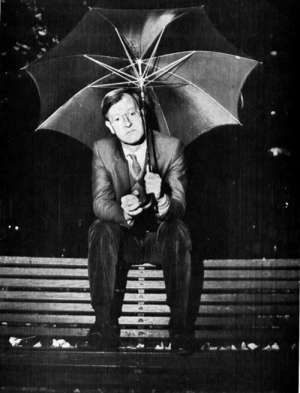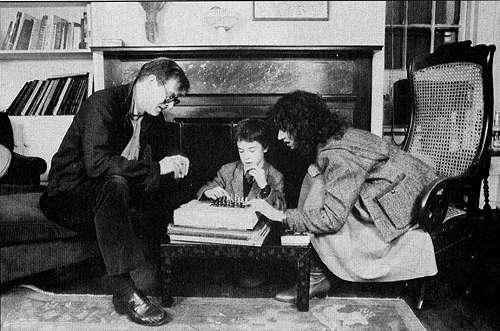To bring its London production of Good to New York, the Royal Shakespeare Company traveled light. The late C.P. Taylor's play, which traces the subtle, insidious slide of a Frankfurt professor toward Nazism, unfolds on a virtually barren stage. The rear brick wall of the Booth Theatre is visible, steam pipes and all; lighting is harsh and artless - 80-odd bulbs inside metal caps mounted on long skewers that nearly converge above center stage. Props? Forget it. The RSC brought to Broadway the one - and perhaps only - property that could leave audiences spellbound after two hours: Alan Howard, 45, widely hailed as one of the world's greatest living Shakespearean actors.
Howard already copped several best actor awards in London for his portrayal of fictional professor John Halder during Good's 1981 debut. American critics have called him "riveting" and cheered that you could "count him on the one hand on which are numbered the finest actors of the English-speaking theater." The secret may be in his genes: Howard's parents were both actors and his uncle Leslie played, among other famous roles, that of Ashley Wilkes in Gone With the Wind. In 25 years in the theater, this Howard has mastered no fewer than six Shakespearean kings and princes and has, at times, performed as many as three RSC parts on the same day.

A brilliant Broadway Nazi six nights a week, Howard takes a deserved bench rest on his evening off.

